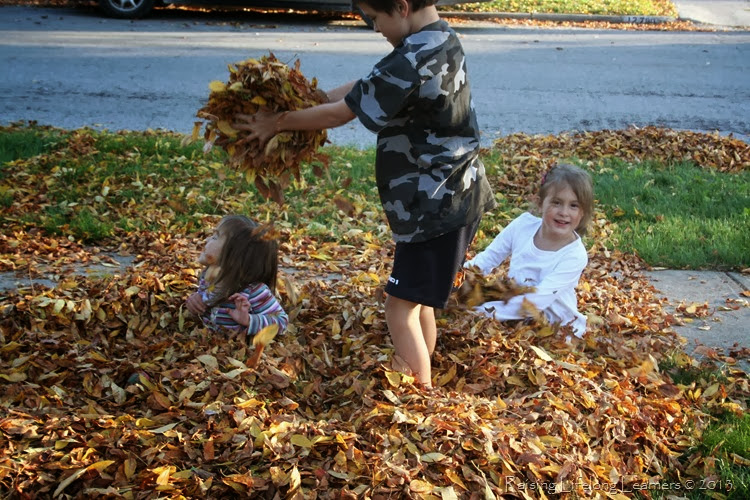Growing Healthy Work Habits
Are you just joining us? We’re in the middle of a ten-day series about Raising Lifelong Learners. Last week we talked about cultivating a learning environment and the importance of early literacy and lots and lots of play.
Today I want to talk about work ethics.
This post may contain affiliate links. Please see my disclosure policy for more information.
I used to think that work and play were separate. That if you worked hard and long, it paid off in the end. It might not be fun, but it was worth it.
Now, I think differently.
It is important to work hard – to have a good, solid work ethic. Diligence is important and something to strive for. But, I don’t necessarily think work and play need to be isolated anymore. I’m striving to teach my kids that they can love what they do, and that work and play can coexist.
As I write this post, I’m sitting in the quiet study alcove at our local library. I can hear the kids in the children’s section, in a muffled way, running around the museum-like play structures and talking about the computer games they’re playing and the books they’re choosing. The man on the cell phone {who, unknowingly prompted me to ask if a study room was available} murmurs on.
I’m at play.
I want my kids to know that, just because writing is my work, doesn’t make it any less my play.
The adorable and talented Cindy West and I chatting at the Prufrock Press booth at the 2012 Great Homeschool Convention.
I’d write if I didn’t get paid for it. I’d write books if they never got published, lessons if they were never used by my kids or others, and stories if they were never read. I love to write. It’s my joy that I’ve been able to work as a freelance writer for the past seven years.
We often think, as parents, that it is our job to hammer home the importance of hard work to our kids during school time or chore time. But, what about play time?
Yes, we need our kids to value a job well done. We want them to know and understand the importance of clean kitchen counters, fed and watered pets, and clean clothes neatly folded in drawers. But, I’d argue that we need them to value a creative Lego design, or a tall, balanced block tower, or a lovely chalk pastel, too.
I don’t want my kids to see the good life as fancy clothes, an expensive car, and time to sit around by the pool {though I don’t see anything wrong with having any of those things}. I want them to understand that the best life is one where they work hard on work and projects that they find valuable. There can be a blurry line between work and play.
Sure, there will always be things kids would rather be doing than a certain subject they disdain. But, what a gift we can give them when we celebrate all work as valuable. “Hooray! Your math lesson today is one I know you’ll understand quickly. Let’s focus hard on it so we have lots of time to devote to our volcano unit study. I can’t wait to show you how the Earth would look if we cut it in half down the middle.”
Chores can be tough though. I know that I am met with grumbles often when I tell my kids to do something that will help around the house. Like I’ve written before, though, children need chores. They need to made to feel as if they are a contributing member of the family community.
Ideally, I’d like my kids to see that things need done around the house {setting and clearing the table, filling the dog’s empty water bowl, or bringing the clean laundry upstairs}, but I know that this isn’t likely to happen without some guidance. Doing simple chores like these isn’t about a “job,” it’s about recognizing that things need to be done to keep a household running, and as members of that household, they should help out.
And, as I tell my kids, that empathetic thinking is what leads to true maturity.
I encourage my kids to have a great work ethic by providing them opportunities to practice working hard without grumbling. They have simple morning, afternoon, and evening chores. We also do thing as a family, like clean up before company comes, rake leaves in the yard, organize the basement, or other big tasks that need done.
Now, I know that I wrote mostly about chores today, and I just finished stating that it’s important to blur those work and play lines in order to achieve happiness, so tomorrow I’ll share ways of growing good workers through projects. In the meantime, tell me how YOU foster an attitude of hard work and diligence in your kids.





